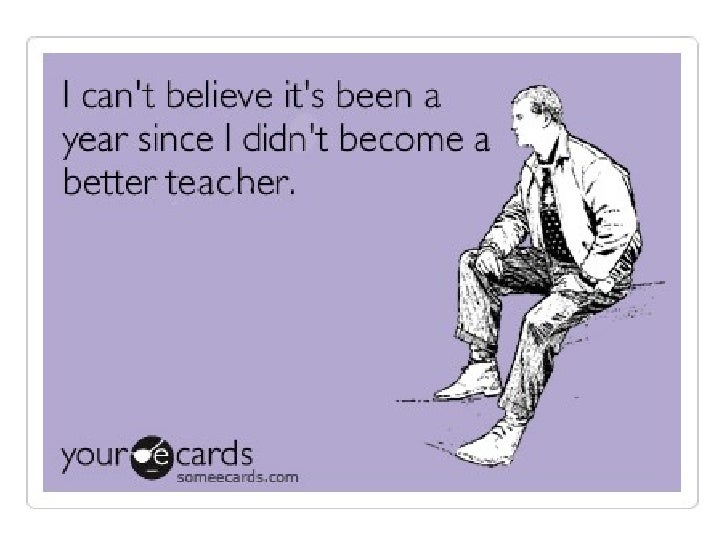
For my last post in my Learning Log for Lorayne's course "Critical and Reflective Practice in Education", I would like to use Larrivee's assessment tool to describe my own level of reflection, both past and present.
Early in my teaching career, before 2008, I was, as the above card accurately portrays, mainly in the Pre-Reflection (Level 1) and Surface Reflection (Level 2) stages. Why do I think so? Well, I taught my classes with the express purpose of relaying information with minimal support from any established theories, research or best practices. As such, I was very teacher-centered considering most of my beliefs were based on my own classroom experience. My focus was on short-term results and did not recognize the different learning needs of students. As described in the article, my concern was, "mainly with means, rather then ends".
Since this time, I have been engaging in much higher levels of reflection.
Based on the following descriptors, in Larrivee's article, I would say that I'm currently navigating between Levels 3 and 4:
To break this down even further, before Lorayne's class, my practice indicated I was more in Level 3. Having completed an M.Sc. in Linguistics at Aston University, in 2008, I developed a good habit of questioning my own assumptions and strategies based on theory and research in the field of TESL including how:
- ELL's successfully acquire a second language,
- to measure learning needs
- to implement different methodologies such as Problem-Based Learning
- to assess students fairly,
- to involve students' prior knowledge,
- find alternative ways to represent information, and;
- constructively criticize my own learning
However, it wasn't until I moved back to Canada, in 2012, when I started to think beyond the classroom and different theories to look very seriously at what it means to have a quality educational experience and reflect upon the principles of justice and equality. In Lorayne's course, my Critical Incident group used my current situation as the "International Student Support Officer" to address the "low retention rates of International students at Algoma University". Based on the realities of my job, I've encountered a great deal of diversity, and because of this, I've had to seriously reexamine and question my own set of believes and learn how to suspend judgement - all of which, according to Larrivee, are descriptors of Critical Reflection!
